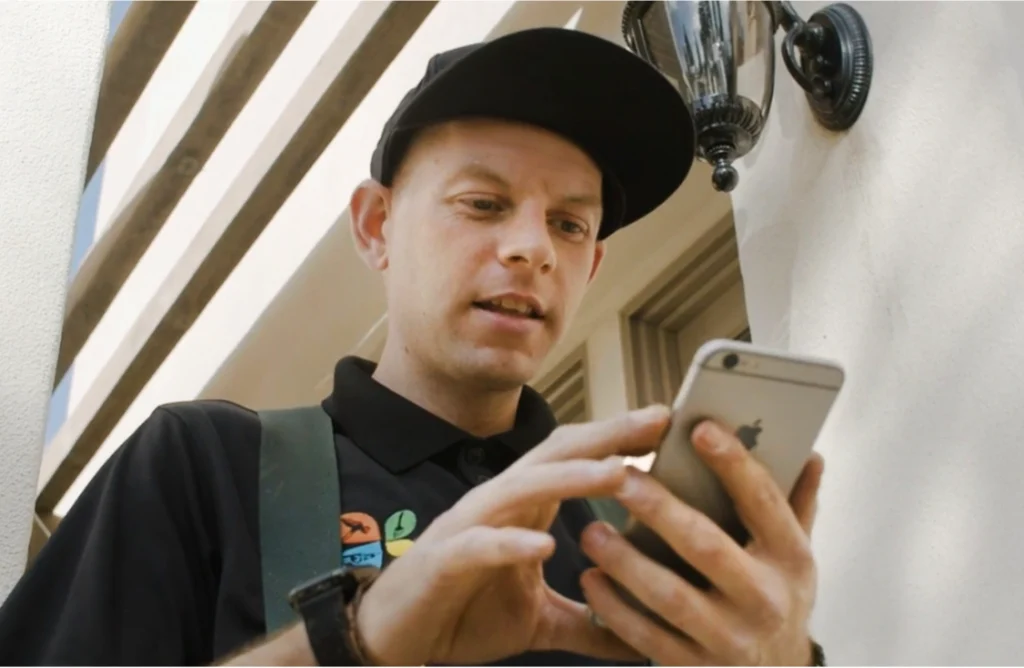
If you’re unfamiliar with the term, HVAC memberships are very similar to recurring service agreements, maintenance plans, and warranties. But, there are some important differences too. In this article, we’ll cover some tips to help you learn how to get more HVAC contracts by selling recurring service agreements to your customers. Let’s get started.
Your HVAC business needs to be selling memberships
Though the specific format can vary by industry, an HVAC membership plan, or recurring service agreement generally refers to a document that outlines an ongoing arrangement between a business and a customer.
Recurring service agreements are nothing new, although they’re most commonly associated with streaming entertainment and the telecom industry (internet providers use them to ensure the reliability of their clients’ connections). However, now that more of the economy is shifting toward subscription-based services, more businesses are offering recurring service agreements—including a growing number of companies in home-service industries.
How to sell service plans for your HVAC business
If your home-service company is like many others, it relies on a steady stream of customer calls to stay in operation. Yet, if your phone stops ringing for whatever reason, your business could be at risk. But what if there was a way to put your finances on autopilot, allowing your company to weather even the worst of off-seasons? That’s the transformative effect recurring service agreements can have for businesses that make house calls.
Basically, you’re generating revenue each month to plan ahead for those regular service calls. This keeps your existing customer engaged and gives your field techs an opportunity to upsell your customers when they can afford it, not when they have to get it urgently.
Relying on a sales proposal tool makes selling membership plans a breeze. When set up correctly and consistently, they get your techs to easily make a recurring agreement with customers.
Generate steady revenue with service plans
Housecall Pro makes auto-scheduling appointments easy, keeps credit cards on file, and gives you a customer portal where people can log on and make changes to their account. Offering recurring services is a simple way to up your income all year long. We’ve got the tools to help you set up recurring service plans, remind customers they’re due for work, and get paid.
Recurring service agreements means recurring revenue
The biggest benefit of offering HVAC memberships is the recurring revenue that your business stands to earn from your customers—especially when there’s little-to-no extra effort required on your part. But recurring service agreements also offer other advantages to your company and its clients. Here are a few:
- Memberships can be tailored to individual clients so that the agreement covers aspects of your service that matter most to the customer
- Recurring service agreements protect both you and your customers by guaranteeing the quality of your service and spelling out your clients’ financial obligations
- These contracts provide a quick and convenient solution for your customers by allowing them to pay a fixed cost for your services
How to create a recurring service plan
For HVAC businesses, a recurring service agreement can be set up for regular tuneups for residential HVAC installs. Then the customer can pay you regularly for their checkups, and you’re making money with planned business on the books.
For HVAC, electrical, plumbing, and pest control businesses, the role of recurring service agreements is similar to that of a warranty. In this scenario, your customers make monthly payments as a form of insurance should an issue arise. On the other hand, for carpet cleaners, maid services, window washers, and similar businesses, recurring service agreements revolve around services that are generally performed on a monthly or quarterly basis.
Part
1
Items to include in an HVAC membership
Step 1: Decide which services to provide
Detail the type and scope of your services and any additional details about your offering. Will you provide recurring maintenance at your customer’s home each month, or does your work only require you to respond to issues as needed? How much will your customers pay for these services, and when does the agreement expire?
Step 2: Determine monitoring and reporting standards
Will your business provide regular inspections or auditing services as part of your recurring service agreement? If so, explain how your workers will collect that data and share whether or not customers can access the information gathered.
Step 3: Provide additional information about emergencies
Give your customers peace of mind by providing them with an action plan in case an emergency strikes. Appropriately set expectations by defining how quickly customers can expect an emergency response and how rapidly issues are likely to be resolved.
When it comes to selling customers on a recurring service agreement, one of the most important factors is how your employees talk about the agreement’s terms. If your workers use language that’s too loose, it could leave elements of the agreement open to interpretation, which might lead the customer to feel misled when they read the fine print.
And if your technicians only mention the monthly cost to customers without highlighting any of the recurring service agreement’s advantages, your customer will be less likely to seriously consider the recurring service agreement. That’s why it’s so important to train your team members about how to position your recurring service agreement.
Part
2
Train your techs to sell HVAC memberships
Step 1: Hold a training session
Your employees will never sell any recurring service agreement if they don’t understand how they work. Host a comprehensive workshop introducing your team to the agreement and ensuring they understand it inside and out.
Step 2: Make it worth their while
Get your employees excited about selling recurring service agreements by offering them incentives to sign up customers. Either cut your workers in on the revenue or give them substantial rewards for reaching a certain level of sales.
Step 3: Crunch the numbers
Coach your crew to show customers how much money the recurring service agreement could save them by using a notepad and calculator to do the math right in front of them. To make things even easier, be sure to simplify your pricing using a visual price book.
When is the right time to introduce customers to memberships?
For home-service businesses that are new to the concept of selling their services as an ongoing arrangement, choosing the best time to talk to customers can be a challenge.
So when’s the best time to bring up your recurring service agreement—before, during, or upon completion of a job? The right answer depends on pricing, ease of sign-up, and the sales skills of your workers. That said, by introducing your business’s recurring service agreement at the end of a job, you’ll have the chance to crunch the numbers and show them how much they can save on their service by signing up for a recurring service agreement that day.
What incentives should I offer my customers?
If you want to sign up as many customers as possible for a recurring service agreement, you’ll need to make the decision a no-brainer. One of the best ways to do this is by offering your customers additional incentives to increase the perceived value of your recurring service agreement. With that in mind, here are a few benefits to offer customers to encourage them to sign on the dotted line.
- Offer at least 10% off — You might have to tweak your margins to fit this into your pricing. Still, by reducing the cost of your services by at least 10%, frequent customers are more likely to be swayed by the potential savings your recurring service agreement makes possible.
- Toss in a free service — If your recurring service agreements include monthly service calls, offer to have your workers perform “nice touch” tasks such as replacing aging gaskets or swapping out smoke detector batteries.
- Implement a referral program — Encourage your customers to spread the word about your subscription-based services by setting up a referral program that rewards customers for signing up their friends.
Sell recurring service plans from the Housecall Pro mobile app
By offering your services as part of a recurring service agreement, you can put your income on autopilot by receiving a monthly payment to cover a variety of ongoing HVAC services—even small services like filter changes! So instead of depending only on inbound calls to stay in business, embrace a subscription-based model to boost your bottom line.
Using Housecall Pro, you and your field team can quickly access the customer’s profile, update the proposal to include a service plan, and get a signed estimate in minutes. Empower your field crew to close more sales without having to go back to the truck to do the paperwork. Using their mobile device, they can show the customer the plan details, along with a proposal complete with pictures, so they’re clear on what is covered. You can also track and manage all customer recurring service plan details in one dashboard with our comprehensive HVAC proposal software.
Create different recurring service plans that work for different customers and have them saved to your Housecall Pro software. This will help you combat “slow seasons” and earn you recurring revenue all year long.






